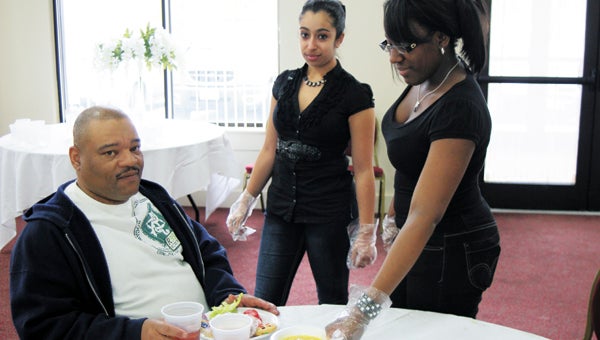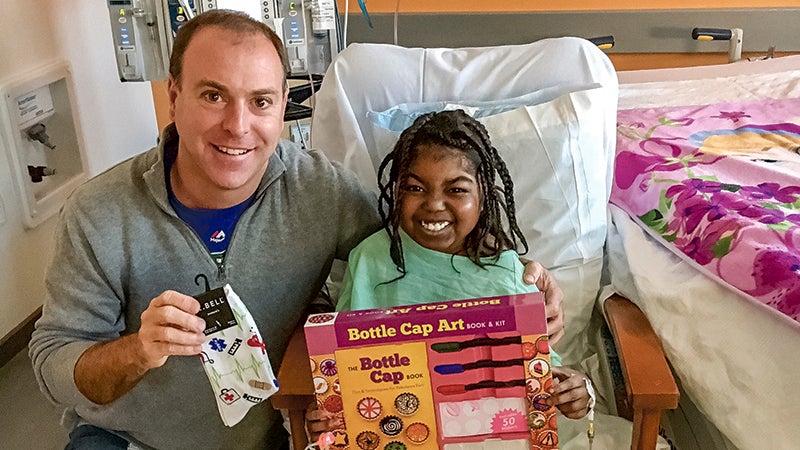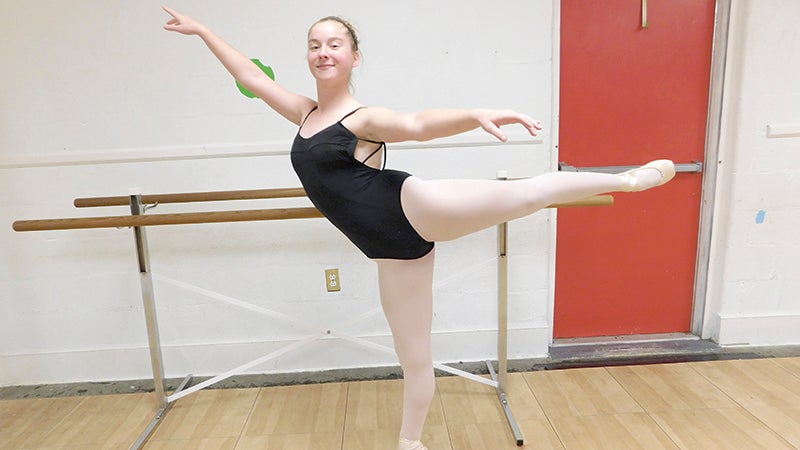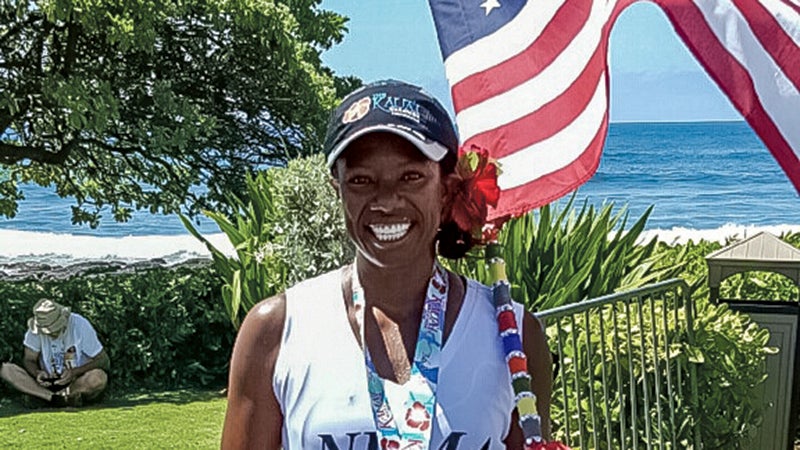IB students learn to give back
Published 9:42 pm Saturday, March 23, 2013

King’s Fork High International Baccalaureate students Orquidea Aleagha and Brittany Corner serve lunch to Nate Collins on Saturday. The soup kitchen at Tabernacle Christian Church was organized by Corner, with some help from Aleagha and others, as an IB community service project.
At Tabernacle Christian Church on East Washington Street Saturday, four King’s Fork High students were making sure no one who turned up was going to leave hungry.
The menu, organized by Brittany Corner, Orquidea Aleagha, Jasmine Parha and Daeja Godette, featured chicken-noodle soup, three different types of sandwiches, crackers, desserts, sweet tea and pink lemonade.
Corner had decided on a soup kitchen, to fulfill the CAS (Creativity, Action, Service) component of her International Baccalaureate studies, back in November, so Saturday marked the rewarding culmination of months of hard work.
“This is the first time I have done something this big,” Corner said, talking while serving Nate Collins, a military veteran living in the Hollywood part of Suffolk.
At her church, she tutors younger children and helps them with homework; but rallying support from donors to provide meals for 300 folks, Corner said, was a whole new experience.
Aleagha, a fellow junior whom Corner selected as her project partner, said, “I found it a lot of fun. It’s something different — I’ve never done anything like this before. It was actually a pretty cool experience.”
Spanish teacher Stefanie Hicks, its coordinator for the school district, wrote in an email that CAS encourages among students “a life-long desire to help give back to the community, both on local and global levels.”
Students learn how one person can make a difference in the lives of others, according to Hicks. “That feeling can have a profound effect on many.”
The idea of CAS, according to Hicks, is for students “to be continually active” in each of its three aspects for at least 18 months, while striving to achieve a balance between them.
This process allows them to attain eight learning outcomes, such as an increased awareness of strengths and areas for growth, experience initiating and planning activities, working collaboratively and perseverance and commitment.
CAS relies on cooperating businesses and groups, and Hicks wrote that the number of these around Suffolk is growing. “There are many organizations in which our IB students are participating in various activities; however, in most instances the students have taken the initiative,” she wrote.
CAS requires students to seek their own service opportunities, plan and execute projects, and afterward reflect on both themselves and recipients. Corner said she’ll be following up her soup kitchen with a 500-word essay.
Collins, between taking mouthfuls of the food Corner provided, said he’d felt welcome as soon as he entered the room.
“They don’t ask questions, like where I come from; they just asked me if I wanted something to eat,” he said. “That’s how you win souls.”
Elsewhere in the community, according to Hicks, Suffolk IB students raise funds for different diseases, disabilities and social issues, and they volunteer at Sentara Obici and Portsmouth Naval hospitals, among other activities.
They have volunteered at the Peanut Festival as members of the Goober Gang, helped out the city’s Department of Parks and Recreation, and also visited the Children’s Hospital of the King’s Daughters.
“Through CAS, students find things that interest them, find they have the ability to do more than they thought, feel the satisfaction in their successes and in helping others, learn how to budget their time effectively and … take a breather from their studies, hence creating a well-needed balance in their lives,” Hicks wrote.





